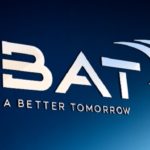Stakeholders in Dairy Production have called for a zero tax exemption policy on dairy equipment to help boost the quality and quantity of dairy products for Nigerians.
Some of the stakeholders made the call at the 2022 summit on National Livestock Transformation Plan (NLTP) organised by the Ministry of Agriculture and Rural in collaboration with Agriculture Correspondents of Nigeria (ACAN) with support from Sahel Consulting Agriculture and Nutrition in Abuja.
Dr Jimmy Johnmark General Manager of Arla Farm said Nigeria is one of the largest populations in the world, but sadly, the country’s milk consumption visa vis production is low.
“We currently produce less than 10 per cent of what we currently consume, because there is no enough equipment to boost production that would satisfy the population,” he said.
Johnmark appealed to the government to step in to encourage the production and processing of dairy products by making it easy to access the equipment at a low price.
He said the high tax on the equipment contributes significantly to the low quality of dairy products because most people tend to cut corners because of the high taxation possed on equipment.
According to him, the quality of dairy could be affected because of bottlenecks due to higher taxes on equipment slowing down the process of production.
“Most of the dairy equipment are not produced locally, and we need to import a lot of these things to be able to function in that industry
“And if there is no zero tax, just like in the other agricultural machinery, then we are bound to have this process being slowed and investment will not be much is affecting milk quality,” he said.
He said milk was one of the most difficult food items to handle it can easily get spoiled if the right equipment was not used.
ALSO READ FROM NIGERIAN TRIBUNE
- I Already Prepared My Grave —Alaafin
- Dubai Sex Video: NAPSS Raises Concerns Over Closure Of Chrisland Schools
He said most of the equipment are needed to ensure that milk quality is high.
“If the taxes continue to go high people will not import and they will continue to cut corners which will affect the quality and the production in the long run.
Johnmark also call for more establishment of milk processing centres in each state and rehabilitated the few in existence.
He said the establishment of more centres would contribute to empowerment and improving the value chain and less wastage.
Professor Demo Kalla, a lecturer from Ahmadu Bello University, Zaria (ABU) said there was a need for encouraging local fabrication of dairy equipment to reduce imports and to have more milk aggregators in the dairy clusters to facilitate milk collection.
According to him, our priority is to increase the flow of milk in Niger to stop importation and help reduce the high price of these products to make them available to Nigerians.
Mrs Victoria Uwadoka, an Official of Nestlé Nigeria in her presentation called on FMARD and the Ministry of Interior to strengthen agro rangers to help mitigate security challenges where some processing centres are.
She said there was a need for livestock regulatory agencies to track the slaughtering and movement of any animal for proper traceability of dairy animals.
How Workplace Sexual Harassment Forces Many Out Of Their Dream Jobs
Stakeholder calls for zero tax exemption policy on dairy equipment






